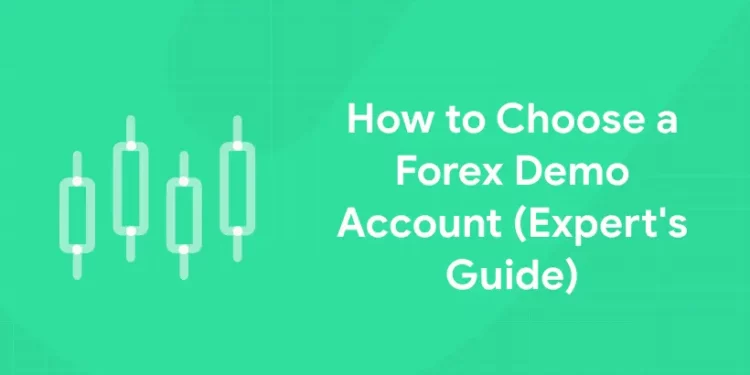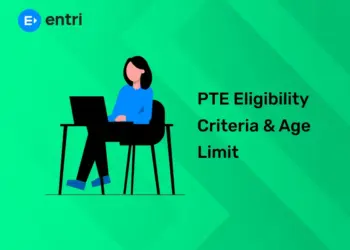Table of Contents
The market for forex trading is dynamic and sophisticated, requiring a high level of expertise. Trading on a demo account is an excellent way to practice and acquire this knowledge. With a demo account, traders may practice and learn the basics of trading without having to risk any real money. But the question “How to Choose a Forex Demo Account?” keeps echoing in our mind. And that is exactly what this blog is going to be discussing about.
How to Choose a Forex Demo Account: Introduction
Prospective forex traders must select the best demo account. Choosing a good demo account has the power to bring productive learning experiences while choosing a bad one brings a frustrating Learning experience. In this blog, we will try our best to answer the question “How to Choose a Forex Demo Account?”.
Get the best forex trading mentors in the field! Join the Entri app forex trading course today!
How to Choose a Forex Demo Account (Expert’s Guide)
1: What is a stock?
There are some important things to think about while choosing a demo account for forex trading. The most important ones among them are listed below.
Selecting a Platform
Choosing a trustworthy forex trading platform is the first step towards selecting the best demo account. The platform ought to provide a variety of order types, a user-friendly interface, strong charting capabilities, and real-time market data. Some of the best options in the industry are listed below.
MetaTrader 4 (MT4)
In the forex market, one of the most widely used trading platforms is MT4. It is well known for its customizable features, sophisticated charting tools, and easy-to-use interface. MT4 demo accounts are widely available from brokers, giving traders a comfortable setting in which to practice.
Real-time market data is available with the MT4 demo account, which enables traders to test various methods, monitor price movements, and execute trades. To help traders automate their trading decisions, it also provides an extensive selection of technical indicators and expert advisors.
MetaTrader 5 (MT5)
MT5 is a follow-up to MT4 and includes more features and functionalities. While MT4 is more widely used, MT5 has been gaining popularity among traders because of its improved trading features and wider asset class offerings.
Traders can access a wider variety of financial products, such as equities, commodities, and cryptocurrencies, with the MT5 demo account. Additionally, it offers enhanced backtesting capabilities, which let traders evaluate how well their methods performed on past data.
cTrader
cTrader is another famous trading platform, recognized for its slick design and user-friendly interface. It provides a broad range of technical analysis tools, comprehensive market information, and advanced order types.
Traders can explore the ECN (Electronic Communication Network) environment with narrower spreads and faster execution times using the cTrader demo account. Because institutional traders frequently utilize cTrader, it also enables traders to test their ideas in a real-world market setting.
NinjaTrader
NinjaTrader is a strong trading platform that primarily serves futures traders. It provides a strong environment for developing strategies, customisable indicators, and sophisticated charting tools.
With the NinjaTrader demo account, traders can practice trading futures contracts without having to risk real money because it gives them access to real-time futures market data. Additionally, it provides a simulated trading mode that lets traders use past data to backtest and enhance their techniques.
Also read: 25 Best Forex Trading Demo Accounts in 2024
TradingView
TradingView is a widely used web-based charting application that is utilized by investors and traders globally. It provides social trading capabilities, a large selection of technical analysis tools, and customisable chart layouts.
Traders can examine real-time market data, create trend lines, and add technical indicators to their charts with the TradingView demo account. Additionally, it gives users access to a trading community where they may exchange concepts, tactics, and trading signals.
Join to attend the best online course provided for learning forex trading!
Selecting a Broker
The broker ought to be respectable, licensed, and provide competitive commissions and spreads. To accurately imitate real trading conditions, it is critical to use a demo account provided by a reputable broker. Also, make sure that your selected platform is offered by the said broker. This is because some brokers have trading platforms that are unique to them.
The broker’s security and regulation are the most important factors to take into account when selecting a Forex demo account. To protect your money and private data, you must trade with a regulated broker. Reputable regulatory organizations in the UK are the Prudential Regulation Authority (PRA) and the Financial Conduct Authority (FCA). Please confirm that the broker is regulated by one of these organizations before opening a demo account.
The Securities and Exchange Board of India (SEBI) oversees the actions of forex brokers, while the RBI controls forex trading in the country. As the regulatory authority overseeing the Indian securities market, SEBI is in charge of safeguarding investor interests and making sure that transactions are conducted fairly and openly.
Things to be Cautious When Choosing a Broker
There are certain things that you should be warned about and look out for while choosing your forex broker. Two of them are listed below.
Hunting and Sniping
Sniping and hunting are terms used to describe the premature purchase or sale of currencies around predefined points. These are improper actions taken in an attempt to boost profit. Speaking with other traders is the only way to find out which brokers engage in this activity. There isn’t a blacklist or group that documents this kind of behaviour.
Suspect Margin Rules
The amount of risk you take while trading with borrowed funds is determined by your forex broker. As a result, you may suffer if your broker decides to purchase or sell at their discretion.
Assume, if you have a margin account, that your position experiences a sharp decline followed by a return to all-time highs. On a margin call, some brokers will liquidate your position at the low even if you have sufficient cash on hand to cover the value change. You may lose a substantial sum of money as a result of their actions.
Make sure you carry out extensive research before choosing a broker. Once you’ve decided on a forex account, the process is similar to that of opening an equity account. The requirement to sign a margin agreement is the only significant distinction for forex accounts. According to this agreement, the brokerage has the right to interfere in your trades to safeguard its interests because you will be trading with borrowed funds. Having said that, you will be able to trade as soon as you register and fund your account.
Real-time Market Data
Real-time market data ought to be accessible through a demo account. This covers news feeds, historical data, and real-time price quotes. Learning how to assess the market, spot trading opportunities, and make wise trading decisions all depend on having access to real-time market data. As a learning tool, the sample account becomes useless without real-time data.
Trading Instruments and Assets
Numerous currency pairs, commodities, indices, and other assets are traded in forex. It’s critical to confirm that the platform provides a wide range of trading instruments when selecting a demo account. This enables traders to further develop their diverse trading techniques and experience trading a variety of assets. A trader’s ability to investigate various markets and trading opportunities may be hindered by a demo account that offers a limited selection of trading instruments.
| Achieve Financial Freedom with these courses? | |
| Forex Trading Course | Stock Market Trading Course |
Tools for Risk Management
A variety of risk management tools ought to be available to traders through a quality demo account. These resources are crucial for understanding risk management and capital preservation in trading. Take-profit, stop-loss, and trailing stop orders are a few popular risk management methods. Traders should be able to practice using these tools efficiently and comprehend how they affect their trading tactics with the demo account.
Educational Resources
A demo account should come with extensive support and instructional resources. Tutorials, webinars, articles, and other educational resources fall under this category. A top-notch demo account provider ought to supply traders with an abundance of instructional materials to aid in their understanding of risk management, technical analysis, fundamental analysis, and forex trading fundamentals. This guidance and instruction can significantly improve a trader’s educational experience and aid in the development of their trading abilities.
How to Choose a Forex Demo Account? Click to get assistance from our expert mentors!
Duration and Restrictions
There are demo accounts that have time limits that restrict the trader’s access to the account after a predetermined amount of time. Selecting a demo account that provides enough time for practising is crucial. Furthermore, limitations on the quantity of virtual money accessible or the number of trades may apply to certain demo accounts. Traders ought to take these limitations into mind and select a demo account that lets them practice trading without restrictions.
Account Balance and Leverage
Consider the virtual account balance and the broker’s leverage when selecting a Forex demo account. The quantity of money in your virtual account should be accurate and equal to what you plan to invest in actual trading. Furthermore, the leverage ought to be modifiable so that you can experiment with various trading and risk-management approaches.
Making the Switch to Live Trading
You should eventually move from trading on a demo account to actual money live trading. Therefore, picking a Forex demo account from a broker who offers live trading services is advantageous. When you’re ready to start trading with real money and feel secure, this will make the transfer easy.
Trading Simulation Mode
Look for a demo account that enables you to evaluate the performance of your trading strategy by simulating it with previous data.
Types of Accounts
Most brokers provide a variety of account kinds, often based on your level of experience. There are often demo accounts available where you can trade risk-free in addition to live accounts for beginning, medium, and advanced users. Depending on the type of account, different trading conditions (such as spreads, fees, and maximum leverage) may apply.
Fees and Spreads
You have to pay the broker spreads and fees to trade. Spreads function similarly to a commission. They are a percentage of your trade. Whereas fees can be an amount you pay per trade. Spreads are expressed in mean hundredths of a percentage (0.0001 = 1 pip) and pips (% in points). The broker of your choice should provide the tightest spreads available. It would be a good idea to confirm if the broker can charge a fixed fee in place of spreads if you are an experienced trader and make larger trades. The best option for you will be a tight spread if you prefer to trade smaller sums.
Customer Support
Consider how vital it is for you to be able to access your broker at any time. While most brokers are reachable from 10 PM GMT+1 on Sunday to 9 PM GMT+1 on Friday, several are open around the clock, or throughout the hours that the currency market is open. The services offered also differ, ranging from phone support to email and live chat.
Speed of Execution
Execution speeds differ for accounts and brokers. This might not mean much to an inexperienced trader, but it might be a deal-breaker for an experienced trader.
How to Choose a Forex Demo Account: Conclusion
In conclusion, forex traders must select the best demo account. It offers a risk-free setting for learning and applying trading techniques. Traders should think about things like the platform and broker choice, real-time market data, leverage and account size, risk management techniques, trading instruments and assets, education and assistance, duration, and restrictions etc. while choosing a demo account. To get deeper into forex trading and sharpen the skills necessary for success, consider enrolling in Entri’s forex trading course. Traders may make sure they select a demo account that best meets their needs and aids in the development of the abilities required for successful forex trading by carefully weighing all of these factors. You can answer the question “How to Choose a Forex Demo Account?” yourself from all the information provided in this article.
Stock Market Training Reviewed & Monitored by SEBI Registered RA
Trusted, concepts to help you grow with confidence. Enroll now and learn to start investing the right way.
Know moreFrequently Asked Questions
Is a demo account for Forex free?
Absolutely. To entice you to deposit money and establish a long-term relationship, reputable brokers provide free demo accounts.
Can I use my phone to trade on a demo account?
Demo accounts can be downloaded on laptops, desktops, and portable devices like iPads and mobile phones. The most important thing is to practice whenever and whenever you can.
Can my demo Forex account be reset?
If you have overinvested and finished up your demo account balance, most brokers will allow you to reset it. It provides you with a new beginning following a series of unsuccessful trades.
How long should I utilize a Forex demo account before transitioning to an actual account?
You ought to continue using the demo account until you are confident enough to risk real money and fully grasp the fundamentals of forex trading. Your ability and the amount of time and effort you invest in trading on the demo account will determine the answer, which will differ for each person. Don’t feel pressured to jump right into live trading. The more practice you get on a demo account, the more probable it is that you’ll succeed with real money trading.










